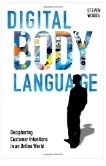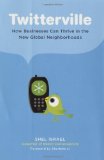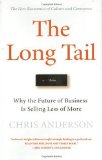Virtual Event Vendor Checklist Part 3: Engagement and Experience

via Flickr by Karen Eliot
So you’ve decided to move forward with a virtual event. You have your team in place and have established a structure for planning the event. Now you have to design and build it. Since “virtual” event experiences are so new, many event and meeting planners are turning to vendors and suppliers to counsel them through this process.
The challenge is how to avoid “cookie-cutter” virtual event experiences that may not be appropriate for your audience and objectives. Consider these questions under the specific topic areas (* are questions contributed by Donna Sanford of Sanford Project Partners, your outsourcing partner for events, print and digital media). What additional questions do you have?
Presentations
1. What works best – audio, video or video-only presentations?
2. Presenting virtually is quite different than in-person. What recommendations do you have for designing the presentation? This includes length of preso, use of slides, inclusion of polling questions, etc.
3. What training can you provide my speakers to address a virtual audience?
4. What type of social media integration do you have within the presentation console for virtual audiences?
Audience Ease-of-Use
1. What tools are available to familiarize my audience before they enter the virtual event?
– can these be branded with my logo?
– what if I want something customized for my event? What is the cost and time constraint?
– do you have an attendee guide that people can download? For those who prefer a manual, this document would provide screenshots of the key elements of the event and what each function is.
2. I have to drive audiences to a specific presentation, booth, etc. for my sponsor/exhibitor. What is the best way to do this?
3. How can we create an experience that easily guides my audience through the virtual event?
– How do we map this out before we begin building the event? The purpose of mapping is to ensure that your key objectives are forefront during the planning stages.
– What are the average number of clicks it will take for someone to do activity X? This can include: getting to a presentation, attending a group chat, sending a vcard, engaging in a one-on-one chat, visiting a booth in the exhibit hall, etc.
Engagement
1. What chat functionalities do you have? These usually include text-based one-on-one, many-to-many, and group chat. Video chat is just emerging and worth asking about.
2. What social media integration do you provide?
– Where/how does one access the social media capabilities?
– Are these consistently available in every area of the virtual event? For example, is twitter available in the group chat area but not in the exhibit hall. Why or why not?
3. Do you have match making capabilities? How does it work? And do they bring in my existing social graph from other social networks?
4. How do you connect speakers with the virtual audience?
5. How do you help exhibitors/sponsors engage with attendees?*
6. What kinds of tools or programs do you have for attendees to engage with one another?*
Hybrid Events
1. What tools do you have for the in-person and virtual attendees engage with one another?*
2. With regard to the physical event, would you program the virtual event exactly with, separately from or a combo of the two? Based on my event, what would you recommend?
3. Should my virtual event be visually similar to my physical event?
Additional Resources
1. Virtual Event Vendor Checklist Part 1: Event Support & Experience
2. Virtual Event Vendor Checklist Part 2: Planning Tools
3. Pulse Staging: Tips for Presenting to a Virtual Audience
4. A Wider Net: Why Engagement Matters More for Virtual Events
PRMM Interview: Dennis Shiao on Lead Generation via Virtual Events
In this installment of PRMM Interview, I spoke with Dennis Shiao, author of the It’s All Virtual blog and “Generate Sales Leads With Virtual Events.” This video highlights the motivation behind writing his book, top tips for generating leads via virtual events, and a special offer for his book.
Getting Beyond the Quora Hype

Over the past few weeks, there has been a wave of publicity about Quora, a service seeking to rival LinkedIn’s popular answers service. After reading some of the coverage, I decided to check it out and was a little bit disappointed. I’ve actually been an active participant of an alternative service called Focus.com. While I see the value that services like Quora can bring, I believe that most of Quora’s current hype is due to it’s founder and funding to date.
Right now, I’m keeping an eye on the service and seeing if Quora delivers on it’s hype.
Initial Thoughts About Quora
1. Faster Service: The last few times I’ve accessed the Quora site, the service was slow to load. This made finding questions, responding to them and posting quite laborious. I assume that these kinks will be figured out shortly. In the meantime, this will most likely slow the site’s adoption rate.
2. Registration Required: Since Quora is fairly new, businesses are still evaluating the value of participating on Quora. Unfortunately, you have to register in order to review the content. This puts a barrier not only to businesses but also to the very individuals you’re seeking to attract as subject matter experts. Furthermore, this requirement may drive the initial membership numbers; yet, the statistics will bear out how many are truly active on the site.
3. Quiz Before Asking: Before any member can post a question, there is a quiz on Quora’s recommended way of asking questions. This helps create a standard expectation about what is acceptable and unacceptable; though some may be put off by the approach.
4. Social Community: An interesting aspect about Quora is how the service brings in your social graph, instantly identifying members to follow who you’ve previously vetted. The community can also vote up or down topics, helping to filter out quality questions/discussions.
5. Perceived or Real Influence: Since signing up for the service last week, I already have 30 followers without much work on my side. I wonder if Quora will fall into the “more followers you have, the more ‘influence’ you have” issue that surrounds Twitter and subsequent “influence” ranks.
6. Technology Elite are Present: In discussing Quora to my friend, Dennis Shiao, he highlighted how questions are being answered by some of the industry’s technology elite. I agree with him that this presents an interesting opportunity for members to get a glimpse into the thinking behind some of the industry’s top venture capitalists, technologists and entrepreneurs.
Conclusions: Don’t Put All Eggs into the Quora Basket
Quora is an interesting model where individuals can establish expertise and drive conversations around topics, brands and products. While Quora has received all the “buzz” recently, I would closely evaluate services like Quora to determine which works best for your company based on your audience, objectives and staffing resources. Once such service is Focus.com, which I’ve been an active user of.
Previously started as a lead generation service, the company morphed into its current incarnation in May 2010. I’ll provide my insights about Focus in my next PR/marketing/social media post.
Do you agree – is Quora a case of the PR “buzz” machine getting ahead of the promise?
Other Articles on Quora:
1. Jeremiah Owyang, Quora for Business Not Allowed, But You Should Still Monitor and Respond
2. Mario Sundar, Should I Care about Quora?
3. David Armano, Quora Underscores Need for Corporate Ambassadors
Virtual Event Vendor Checklist Part 2: Planning Tools

via Flickr by Karen Eliot
A common thought is that the existing physical event team can “add” virtual as an additional responsibility. But in a recent post, Dannette Veale of Cisco refuted this approach, advocating that a virtual team be in place to manage your virtual event. Another misconception is that your virtual event vendor will provide the necessary tools to smoothly proceed with your event.
Also, don’t estimate the amount of collaboration that will take place. Have a systematic approach to capture these conversations, collaborations and decisions is key to minimizing misunderstandings and mistakes for your event. Consider using a centralized location for this. If the vendor doesn’t have an intranet/extranet, consider using something like Google Docs (share documents) or PBWiki (share docs and track changes with wiki functionality).
In the second in a series of posts, here are questions to consider when working with your vendor:
-
- 1. Do you have a handbook outlining all the steps for planning my event?
- 2. What is the typical timeline and milestones that I need to be aware of for this event?
- 3. Do you have a project timeline that we can mark our progress against?
- 4. What is the process for collaborating and documenting changes/decisions for the virtual event?
- 5. Is there a central place for our respective teams to collaborate?
- 6. I have never done a virtual event before. What are the key differences between planning a similar event virtually versus in person?
- 7. What team are you putting in place to help me with my virtual event? What are their roles and responsibilities?
- 8. What is the ideal virtual team that I should have in place? What are the roles and responsibilities for each person?
Other Posts In the Series:
1. Virtual Event Vendor Checklist Part 1: Event Support & Experience
Updates from PR Meets Marketing
For nearly 3 years, I’ve been writing about PR, marketing, social media, and most recently virtual events. At times, I’ve been very prolific and other times I’ve gone weeks without a post. As a commitment to myself and to you, my readers, I wanted to share some updates for the site in a short video message that I hope will make the blog more useful for you.
Briefly, I am enacting an editorial calendar to help develop a schedule of posts and expectations. My writing schedule will be Mondays (virtual events), Wednesdays (pr, marketing, social media), and Fridays (PRMM interviews with industry experts).
I also want to invite you to submit your ideas for potential blog topics and interview subjects (email or video). Here are some high-level bullet points on what I’m looking for in guest posts, interviewees and/or blog ideas, such as surveys highlighting key trends, case studies that demonstrate ROI, interesting case uses of technology, someone who is truly visionary, etc.
But, most importantly, read my past posts first before connecting with me.
If you’re interested, please drop me a note either in the comments or via email. I look forward to hearing from you and watch here for future announcements.
Top Three Tools for Twitter Conversations
I recently worked with the Virtual Edge Summit to help get the word out about the summit. Social media was an important strategy for reaching target audiences and driving a conversation before, during and after the event. Of all the social media channels, Twitter was an integral part of the strategy. Here are three tools that I recommend if you’re seeking to drive engagement around any event, such as press conference, webinar, conference, product launch, etc.
CoTweet – Schedule Your Tweets
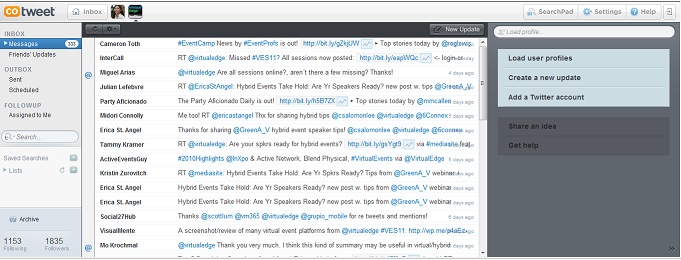
For this particular instance, I knew I would be busy throughout the conference and unable to tweet updates regularly. As such, I used CoTweet to schedule tweets in advance. And as Guy Kawasaki points out, the tweet stream moves so quickly, only a portion of your audience will view your tweet at any particular time.
By using CoTweet, I could schedule advanced tweets about exhibitor promotions during the show, space out reminders to register for the event, and retweet relevant news at specific times to have a rolling set of activity throughout the day.
The other benefit is you can have more than one account and users to manage tweeting responsibilities. This is useful when you have large team of PR professionals, marketers, and/or event staff overseeing the event.
What the Hashtag – Trend and Track Your Hashtag
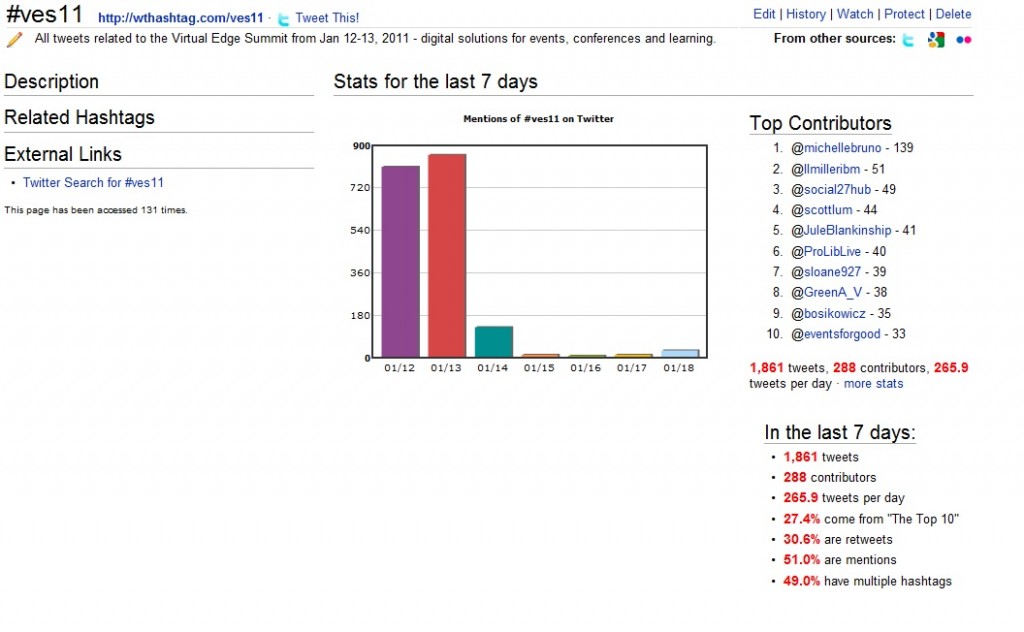
If you plan to use a hashtag, the challenge is creating a simple, visual way to capture the overall activity for the hashtag. What the Hashtag is a tool that allows you to do this. Once you’ve registered your hashtag and added a description, you can view a chart of the number of tweets, top users tweeting out the hashtag and other high-level statistics.
This is a great way to identify top twitterers for that hashtag or your brand. By reaching out to these individuals, you can develop a relationship for future announcements and events.
The only detraction is that the stats are available for only 7 days. So you will want to designate a day to go back and capture the data from the past week, such as first thing Monday morning or end of day Fridays.
Twapper Keeper: A History of Your Tweets
While Twitter is great for publicizing a brand and generating conversation around a community and topics, tweets are not archived. This provides a challenge when you want to create a history or search for specific tweets. One site that may help is Twapper Keeper, which seeks to save tweets related to a particular hashtag.
I created the archive for the Virtual Edge Summit at: http://twapperkeeper.com/hashtag/VES11. While the user interface is inelegant (which is why I decided not to include an image) and service can be a bit slow (at times doesn’t load), the idea is interesting and valuable for evaluating the conversations around a specific hashtag or even keyword. I’m curious to hear of any other similar service as Twapper Keeper has a great idea, but needs to make significant improvements to gain traction.
What do you think? What other Twitter tools would you recommend?
Virtual Event Vendor Checklist Part 1: Event Support and Experience

via Flickr by Karen Eliot
I highlighted three basic types of virtual events. In subsequent posts, I plan to highlight key questions you should ask as you evaluate your virtual event technology provider under the following categories:
1. Event Support & Experience
2. Virtual Event Planning Tools
3. Engagement & Experience
4. Training
5. Metrics and Analysis
6. Product Roadmap/Innovation
This first part focuses on overall virtual event support and experience.
Number of Events Does Not Equate Experience
Many vendors cite the number of events they’ve developed as testament to their support and experience in creating successful virtual events. However, the number of events produced demonstrates only a company’s ability to, well, produce events. Would you select someone who did 1,000 poorly designed events or one who did 200 very well-conceived and implemented events? I argue you would select the latter.
So how do you get beyond the “number of events produced” response to delve into the characteristics you need to plan, build, design and implement a successful virtual event?
1. This is my first virtual event. What is your process with customers like me? What documentation do you provide to help me understand the steps and questions for a virtual event?
2. How many events do your event directors manage at any one time?
3. What is the event director’s experience in planning, building and implementing virtual or physical events like mine? Can you give me sample events s/he has been involved in?
4. How quickly does your team respond to clients? What is the average time elapsed for responses? 30 minutes, 1 hour, 1 day?
5. Do you survey your customers on their satisfaction? If so, what were the results? If not, why not and how do you know if you’re doing a good job with your customers?
6. Can you provide me with 3 customer references similar to my association, corporation or industry?
7. What is your recommended timeline for an event like mine?
What additional questions are there? Share them below in the comments.
About
Favorite Service
Recent Comments
- on Going Virtual Isn’t Necessarily the Answer to Replacing Your Physical Events
- on Going Virtual Isn’t Necessarily the Answer to Replacing Your Physical Events
- on Going Virtual Isn’t Necessarily the Answer to Replacing Your Physical Events
- on Going Virtual Isn’t Necessarily the Answer to Replacing Your Physical Events
- on Going Virtual Isn’t Necessarily the Answer to Replacing Your Physical Events
Ads by Google
Favorite Books
Marketing Blogs
PR Blogs
- KD Paine's Measurement Blog
- Micro Persuasion
Virtual Events & Meetings Blogs
- Cisco Virtual Environments
- It's All Virtual
- The Webinar Blog
- Virtual Edge Institute

 Follow
Follow
 Cece Salomon-Lee is director of product marketing for Lanyon Solutions, Inc. and author of PR Meets Marketing, which explores the intersection of public relations, marketing, and social media.
Cece Salomon-Lee is director of product marketing for Lanyon Solutions, Inc. and author of PR Meets Marketing, which explores the intersection of public relations, marketing, and social media. 